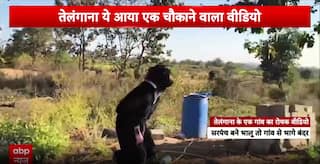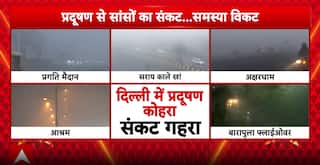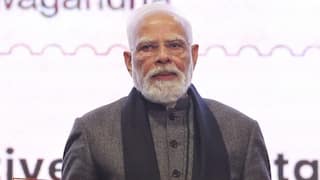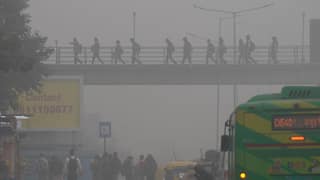Subhadra Kumari Chauhan, Poet, Freedom Fighter And First Woman In Mahatma Gandhi's Non-Cooperation Movement
Google Doodle honours poet Subhadra Kumari Chauhan, most famous for her 'Jhansi ki Rani' poem, on her 117th birth anniversary.

Indian poet Subhadra Kumari Chauhan: "Khoob ladi mardaani voh toh Jhansi wali Rani thi." These words from the evocative poem, 'Jhansi ki Rani', are almost synonymous with Rani Laxmibai, as the poem is considered one of the most recited poems in Hindi literature. The author of this poem is Subhadra Kumari Chauhan, and it's her 117th birth anniversary today, i.e. August 16.
Born in 1904 at Nihalpur near Allahabad in Uttar Pradesh, Subhadra Kumari Chauhan was a freedom fighter too. Today's Google Doodle honours her for her contribution and achievements. The doodle has Chauhan, wearing a saree, sitting with a pen and paper. In the backdrop, one can see a glimpse of Rani Lakshmibai, and also that of the freedom movement.
The doodle has been illustrated by New Zealand-based guest artist Prabha Mallya.
Subhadra Kumari Chauhan had been fond of writing poems since childhood. She is said to have written her first poem at the age of 9, on a neem tree. Five of her published works include two poetry collections — Mukul and Tridhara — and three narrative collections. Her three story collections are Moti, Unmadini and Seedhe-Saade Chitra. She made revolutionary statements in the fight for freedom through her works — she has a total of 88 published poems and 46 short stories.
'Jhansi ki Rani' has, however, remained the most famous work, with the poem making her popular among the masses.
First Woman In Mahatma Gandhi's Non-Cooperation Movement
Subhadra Kumari Chauhan not only put her emotions and dreams on paper but also lived those in her real life. She participated in Mahatma Gandhi's Non-Cooperation Movement, and is said to the first Indian woman to do so. Subhadra Kumari Chauhan played an active role in India's freedom struggle, which led to her imprisonment several times. She also inspires others to join the freedom struggle through her works.
Chauhan’s works, both poetry and prose, were primarily about the hardships, such as gender and caste discrimination, faced and overcame by Indian women.
Subhadra Kumari Chauhan died on February 15, 1948, at the age of 44.
About death, the poet had once said: "I don't have the idea of leaving the earth even after I die. I want to have a tomb, around which there will be a fair, children playing, women singing and a lot of commotion."






































